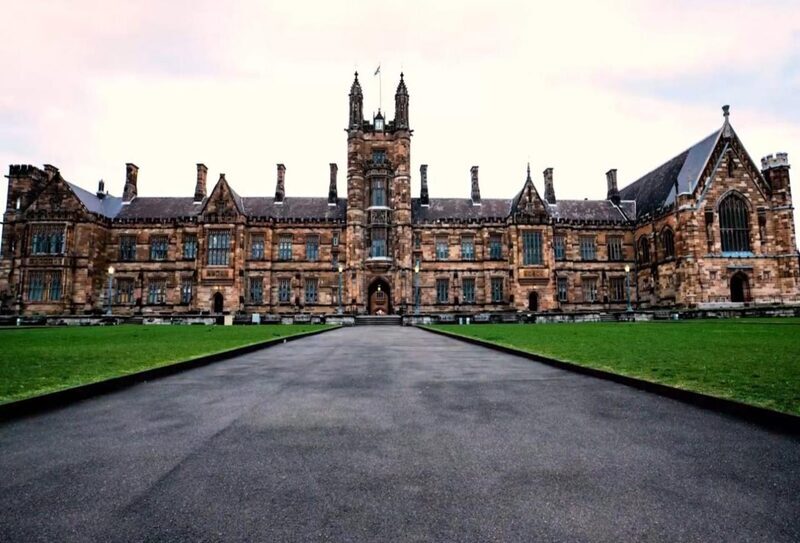
EU adopts new rules to significantly cut packaging waste with re-use targets
The European Union has formally adopted a regulation on packaging and packaging waste. The new ...

This year, the University of Sydney has its largest contingent of Fulbright Scholars since 1972, with eight members of the university community receiving the prestigious scholarship to undertake further study and research in the United States.
The Australian-American Fulbright Commission scholarships are awarded to foster educational exchange and understanding between the United States and Australia.
“Our Fulbright scholars are working in a wide array of areas including artificial intelligence, machine learning, weed control, animal behavior, environmental policy, healthcare for Indigenous populations and genomics. Congratulations to all our recipients who are making a significant contribution in their fields,” Vice-Chancellor and Principal at the University of Sydney Dr Michael Spence said.
Since the scholarships were established in 1949, 5,000 scholarships have been awarded in Australia, including 274 students, researchers and alumni from the University of Sydney. The scholars will be officially announced at a gala dinner in Canberra at Parliament House on 27 February 2020.
Two professors from the University of Sydney have been awarded the 2020 Fulbright Senior Scholarship to undertake research at an institution in the United States.
Professor Paul McGreevy (Sydney School of Veterinary Science) will be researching horse behavior at Colorado State University.
“Since ancient times, horse behavior and the bond between horses and humans has been a source of intrigue and fascination. The horse-lore that has accumulated over the centuries is a rich mix of both useful practice (approaching horses from their left side, making them slightly less reactive) and unsubstantiated myth, such as the one that chestnut horses are especially difficult to deal with,” Professor McGreevy said.
Professor Zdenka Kuncic from the School of Physics will be researching cognitive learning through a nanotechnology device that mimics the human brain’s neural network at UCLA.
“The Fulbright award will advance my research on understanding the underlying physical nature of intelligence and how it emerges from the complex interplay within a neural network-like structure. Using a nanotechnology-enabled synthetic neural network, I’ll be collaborating with colleagues at the California NanoSystems Institute at UCLA to demonstrate the potential for a new kind of machine intelligence, beyond AI,” Professor Kuncic said.
Five University of Sydney alumni and current students have been awarded Fulbright Postgraduate Scholarships to conduct research or undertake a postgraduate program at an institution in the United States.
Nicholas Hindley (Lecturer in Statistics and Data Science at the University of Sydney and PhD candidate at ACRF Image X Institute) hopes to initiate a research program with a global and multi-disciplinary approach to study the safe and effective implementation of machine learning in a clinical setting.
Alice Yan (environmental lawyer, graduate of Bachelor of Commerce and Law) will explore the world-leading environmental policies pioneered in the United States. She will specialize in the ground-breaking science that has driven these policies. Alice hopes to apply this learning to help shape the future of Australian environmental policy.
Ruebena Dawes (graduate of Bachelor of Science – Advanced Mathematics (Honors) and PhD candidate) will study in the laboratory of one of the world’s foremost experts in genomic informatics at Yale School of Medicine, to find genetic answers for an undiagnosed cohort of 82 families with rare disorders. Obtaining a precise genetic diagnosis is of utmost importance for families with genetic conditions, guiding clinical care and enabling precision and preventative medicine.
Gemma Tierney (graduate of Bachelor of Applied Science – Physiotherapy) is an Indigenous physiotherapist of Kamilaroi descent. She will undertake a master of public health, specialising in maternal and paediatric health. She will pursue a career that provides more equitable healthcare to Indigenous women and children.
“Ultimately, I aspire to work for National Aboriginal Community Controlled Health Organisations (NACCHO) in which Indigenous communities work with non-government organisations to deliver appropriate and high-quality healthcare to often remote and rural Indigenous maternal and paediatric communities,” Gemma said.
Dr Sarmad Akkach (graduate of Master of Medicine – Ophthalmic Science) is a surgical trainee and researcher with expertise in Aboriginal and Torres Strait Islander eye health and rural eye care delivery. He will undertake a master of public health, where he will conduct research into novel methods of eye care delivery in rural and low-resource settings.
Guy Coleman (Weed Control Scientist at the University of Sydney) is passionate about the use of machine learning and robotics in weed management. His research will focus on developing efficient machine learning data pipelines and testing how growth stage of wheat, cotton and relevant weeds influences detection accuracy.
“It is very exciting to think I will be conducting research on Australian crops and weeds at a US institution as part of the Fulbright Future Scholarship. Improving agriculture in Australia and around the world through collaborative research is incredibly important if we are to feed the growing world population sustainably,” Guy said.
“My specific research focuses on annual ryegrass (Lolium rigidum) in wheat, although I also incorporate other grass weeds, such as wild oats (Avena fatua), and broadleaf species, including wild radish (Raphanus raphanistrum), for comparison. In the US I will also look at palmer amaranth in cotton, which is a significant problem species for American cotton farmers.”
The European Union has formally adopted a regulation on packaging and packaging waste. The new ...
Inaugurating the Abydos Solar Power Plant in the Upper Egypt governorate of Aswan represents a ...
Businesses that fail to adapt to climate risks like extreme heat could lose up to ...


اترك تعليقا